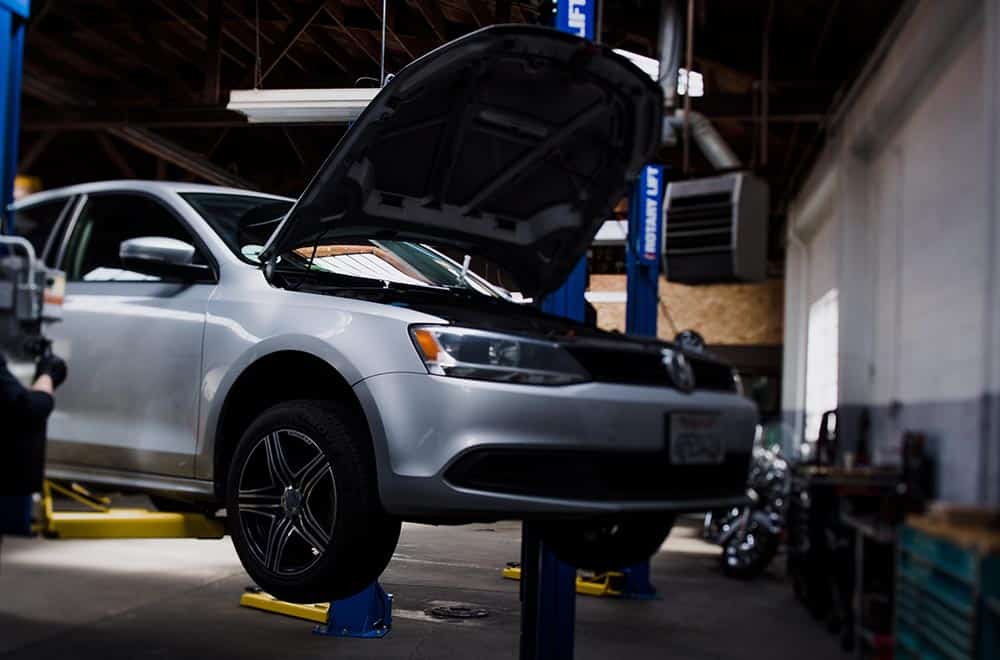Oil Changes Near Me 101
Oil Changes Near Me 101: Why It’s Important and What to Expect
Maintaining your vehicle is essential for its longevity and performance. Among the various maintenance tasks, regular oil changes stand out as one of the most critical. This blog will guide you through the importance of oil changes, how often they should be done, the benefits, and what to expect during the process. Whether you’re a seasoned driver or new to car ownership, this guide will help you understand why regular oil changes are vital for your vehicle and how to find services for oil changes near me.
The Importance of Regular Oil Changes
Regular oil changes are crucial for the maintenance and longevity of your vehicle. Motor oil lubricates the engine’s moving parts, reducing friction and preventing wear and tear. Over time, oil degrades and becomes contaminated with dirt and debris, which can cause engine components to grind together and wear out more quickly. By regularly changing the oil, you ensure that your engine runs smoothly, efficiently, and with a reduced risk of overheating or unexpected breakdowns.
The frequency of oil changes can vary depending on the type of vehicle and its usage. For most cars, automakers recommend an oil change every 5,000 to 7,500 miles. However, if you drive a high-performance vehicle or frequently travel in extreme conditions such as very hot or cold weather, stop-and-go traffic, or dusty environments, you may need to change your oil more frequently, around every 3,000 miles. Always refer to your vehicle’s owner manual for specific guidelines and consult with a trusted mechanic to tailor an oil change schedule that best suits your driving habits and vehicle type. Regular monitoring and timely oil changes help to maintain engine health and optimal performance, ultimately extending the life of your vehicle.

Oil Changes and Maintenance Service
Benefits of Regular Oil Changes
Regular oil changes offer a plethora of benefits that go beyond just keeping your engine lubricated. Firstly, they help to maximize your vehicle’s performance by ensuring that the engine runs smoothly and efficiently. Fresh oil reduces friction, allowing engine components to move more freely, resulting in improved fuel efficiency. When your engine operates with less resistance, it doesn’t have to work as hard, which means it consumes less fuel. Secondly, regular oil changes help to extend the lifespan of your engine by preventing the buildup of sludge and deposits that can cause significant damage over time. Sludge and deposits can clog oil passages, leading to restricted oil flow and increased wear on engine parts.
Additionally, clean oil improves engine cooling by carrying away some of the heat generated during operation, thus preventing overheating. Overheating can cause severe damage to your engine, including warping of metal components and even complete engine failure. By keeping the oil clean and free of contaminants, you help to maintain optimal engine temperature and prevent such catastrophic failures.
Finally, routine oil changes provide an excellent opportunity for early detection of other potential issues, as many service centers include a thorough inspection of your vehicle during the process. This proactive maintenance approach allows technicians to spot problems such as leaks, worn belts, and other signs of wear and tear that might otherwise go unnoticed. Addressing these minor issues early can save you money in the long run by avoiding major repairs and extending the overall life of your vehicle. Regular oil changes are a simple yet crucial aspect of vehicle maintenance that can lead to better performance, longer engine life, and improved reliability.
Signs That Your Vehicle Needs an Oil Change
Recognizing the signs that your vehicle needs an oil change can prevent potential engine damage and keep your car running smoothly. Here are some indicators that it’s time to schedule an oil change:
- Oil Change Light: Most modern vehicles are equipped with an oil change light that illuminates when it’s time to change the oil. If this light comes on, it’s a clear sign that your vehicle’s engine is due for maintenance.
- Dark, Dirty Oil: Fresh oil is typically amber and slightly transparent. Over time, it becomes darker and contaminated with particles. Use the dipstick to check the oil’s color and consistency. If it looks dark, dirty, or gritty, it’s time to change it.
- Engine Noise: Clean oil lubricates engine parts and allows them to function smoothly. As oil degrades, you might begin to hear knocking or rumbling noises, which indicate that the oil isn’t adequately lubricating the engine components.
- Exhaust Smoke: While some vapors can be expected from your tailpipe, excessive or colored smoke can be a sign that the oil is old and needs to be changed.
- Oil Smell Inside the Car: If you notice the smell of oil inside your vehicle, it could be a sign of an oil leak or that the engine is overheating due to old oil. Both situations warrant an immediate oil change.
- Excessive Mileage: If you’ve driven significantly more miles than usual and haven’t changed the oil recently, it’s wise to consider an oil change. Stick to the recommended mileage intervals in your vehicle’s owner manual.
Staying vigilant for these signs can help you ensure timely oil changes, which are crucial for the health and efficiency of your engine. Proper maintenance will keep your vehicle running at its best and help avoid costly repairs in the long run.
The Process of an Oil Change
An oil change is a straightforward process that plays a critical role in maintaining your vehicle’s engine health. Here’s a step-by-step guide to what you can expect during a professional oil change:
- Preparing the Vehicle: The mechanic will start by ensuring your vehicle is parked on a level surface and the engine is cool. They’ll then lift the car using a jack and secure it with jack stands for easy access to the oil pan underneath the vehicle.
- Draining the Old Oil: Next, the mechanic will locate and remove the oil drain plug from the oil pan, allowing the old oil to drain out into a collection pan. This step can take several minutes as all the old, dirty oil is thoroughly emptied from the engine.
- Replacing the Oil Filter: Once the old oil has been drained, the mechanic will remove the old oil filter and replace it with a new one. The oil filter plays a crucial role in trapping contaminants and keeping the oil clean, so changing it regularly is essential.
- Adding Fresh Oil: After installing the new oil filter, the mechanic will replace the oil drain plug and lower the vehicle. They’ll then proceed to refill the engine with the appropriate type and amount of fresh motor oil recommended for your vehicle.
- Inspection and Cleanup: Finally, the mechanic will start the engine and let it run for a few minutes to circulate the new oil. They’ll check for any leaks and ensure everything is functioning correctly. After shutting off the engine, they’ll inspect the oil level using the dipstick and top it off if necessary. Any spilled oil will be cleaned up, and the old oil will be disposed of properly, usually through recycling.
By following these steps, a professional oil change ensures your engine remains well-lubricated, clean, and efficient. Regular oil changes, combined with other routine maintenance, contribute significantly to your vehicle’s performance and longevity.

Auto Oil Changing Service
Finding the Best Oil Change Service Near You
When it comes to maintaining your vehicle, finding a reliable and trustworthy oil change service is essential. Here are some tips to help you locate the best service provider near you:
- Ask for Recommendations: Start by asking friends, family, and colleagues for their recommendations. Personal experiences can provide invaluable insights into the quality of service, professionalism, and pricing of local auto shops.
- Read Online Reviews: Utilize online platforms such as Google Reviews, Yelp, and automotive forums to read customer feedback. Pay attention to recurring themes in the reviews, whether positive or negative, as they can give you a good sense of what to expect.
- Check Certifications and Credentials: Choose a service provider that employs ASE (Automotive Service Excellence) certified technicians. These certifications indicate that the technicians have undergone rigorous training and meet industry standards.
- Evaluate the Facilities: Visit the shops on your shortlist to evaluate their cleanliness, organization, and overall environment. A well-maintained facility often reflects the level of care and professionalism you can expect from the service.
- Inquire About Services and Warranties: Ask about the range of services offered during an oil change, such as fluid top-offs, tire pressure checks, and multi-point inspections. Additionally, find out if they provide any warranties on their work, which can offer peace of mind regarding the quality of service.
- Compare Pricing: While cost shouldn’t be the sole factor in your decision, it’s essential to compare prices among different service providers. Ensure you’re getting value for your money by considering the services included in the oil change package.
- Look for Special Offers and Discounts: Many automotive service centers offer special promotions, discounts, or loyalty programs. Take advantage of these offers to save on routine maintenance costs.
By considering these factors, you can find a reputable oil change service that meets your needs and helps keep your vehicle in optimal condition. Regular maintenance, carried out by a trusted professional, ensures your vehicle runs smoothly and efficiently for years to come.
Conclusion
An oil change is a crucial part of vehicle maintenance that should not be ignored. By staying aware of the signs that your car needs an oil change and following recommended intervals, you can ensure your engine remains healthy and efficient. Additionally, finding a reputable service provider near you and prioritizing regular oil changes will save you from costly repairs in the future. So don’t neglect this essential task – keep your vehicle running smoothly with timely oil changes. Keep up with routine maintenance to keep your vehicle running at its best for as long as possible!
https://www.google.com/maps?cid=257524321519224003
